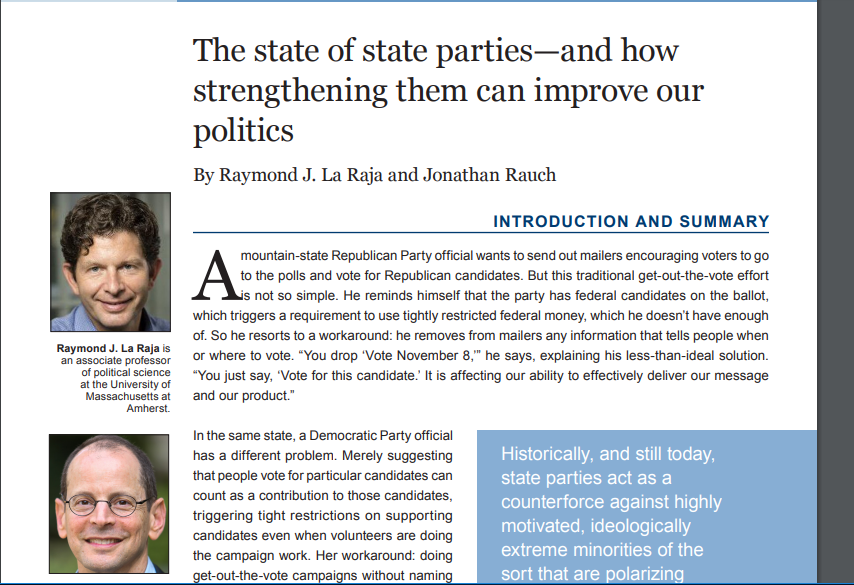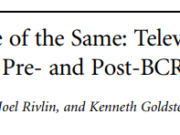In this Brookings Institution report by Raymond J. La Raja and Jonathan Rauch, the authors examine the campaign finance rules and regulations ensnaring state parties and assess how they are increasingly costly in an age when burgeoning independent groups face no such restrictions.
According to the authors, historically, and still today, state parties act as a counterforce against highly motivated, ideologically extreme minorities of the sort that are polarizing and fragmenting American politics. Today, however, state party organizations are falling behind, partly because the nature of politics has changed but partly, also, because of disadvantages imposed on them by well-meaning laws and policies.
With an eye toward understanding how to strengthen the Democratic and Republican state parties, La Raja and Rauch surveyed all 100 of them, receiving responses from 56. The authors then compared those results to two earlier surveys of state parties, one from 2000 and the other from 1999. They also conducted detailed interviews with 15 state-party leaders. Their questions: how are state parties doing; what are they doing; what are their prospects; and what is their potential? Among La Raja and Rauch’s findings:
- Rumors of the death of state parties are greatly exaggerated. Embattled as never before, state parties are struggling to remain relevant amid growing political competition, yet they are putting up a spirited defense and adapting intelligently by focusing on areas of comparative advantage such as grassroots mobilization and voter data.
- The state parties’ problem is less a decline in absolute resources and standing than a decline in relative resources and standing. Keeping pace with the rapid inflow of money and messaging from outside groups and other non-traditional actors is a severe challenge.
- State parties provide important benefits to the political system as a whole, and they retain untapped potential to reduce long-term polarization and extremism by balancing the influence of purist groups.
- Restrictions intended to constrain state parties’ activities and fundraising do exactly that — with the perverse effect of weakening the parties and strengthening unaccountable outside groups. The findings suggest that outside groups have less influence in states where the party committees have more freedom to raise money.
- Much can be done to bolster the state parties by removing rules that unnecessarily and counterproductively tilt the playing field against them. The authors recommend raising or eliminating limits on contributions to state parties, eliminating restrictions on state parties’ ability to coordinate activities with candidates, narrowing overbroad federal regulation, and pruning other rules. Making contributions to state parties tax-deductible also deserves consideration.
Read the full report here.














